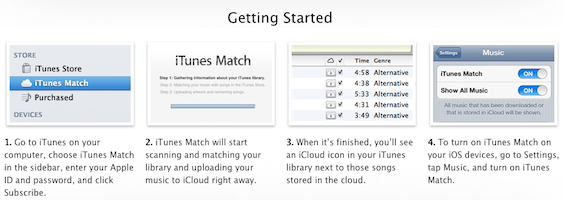
Next, iTunes should begin the process of scanning your music library, sending the results to Apple, and then determining how many songs it can match.On iTunes, click iTunes Match in the left column, then click the blue Subscribe button once you’re ready to pay the $25 annual subscription fee.
Update itunes match on iphone Pc#
Theoretically, that shouldn’t be a problem, since all your music should still be sitting safely in the iTunes library on your Mac or PC that said, better safe than sorry. The reason: iCloud will wipe all the tunes stored on your iDevice before replacing them with music from iTunes Match.
Update itunes match on iphone how to#
So, ready to starting scanning and matching? Here’s how to get started. (You can also disable cellular music streaming by tapping Settings, Store on your iPhone or iPad, and then switching “Use Cellular Data” to “Off.”) So yes, you may still be in for a long wait, especially if you have a lot of obscure tunes on your hard drive.Īnd while you’re free to stream your music over your iPhone’s 3G connection, doing so will count against any data limits in your monthly wireless plan, so make sure to stream with caution. For starters, it’ll cost you: think $25 a year for 25,000 songs (any tracks purchased from iTunes don’t count against the limit, by the way), plus more for additional storage.Īlso, while Apple has about 20 million tracks in its iCloud library, it probably won’t be able to match everything in your personal collection-and that means you probably will have to upload at least some songs to your music-locker-in-the-sky.

Of course, iTunes Music comes with strings attached. That’s a much speedier process than uploading each and every MP3 you own to your digital music account-a chore that could take hours or days, depending on the size of your music collection and the speed of your Internet connection. ITunes Match scans all the music on your hard drive, and then “matches” them with high-quality versions that you can stream from iCloud.īut iTunes Match offers a clever feature that Amazon and Google don’t (or at least, not yet): the ability to scan the music on your hard drive, and then quickly “match” those songs with high-quality versions of each track that are already sitting on Apple’s iCloud servers.


 0 kommentar(er)
0 kommentar(er)
